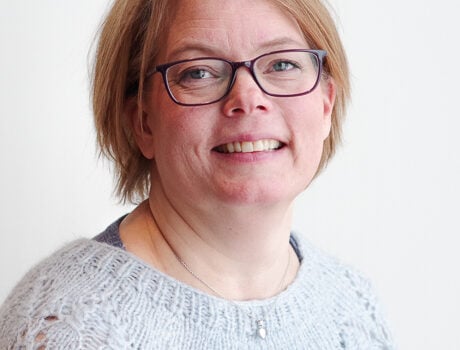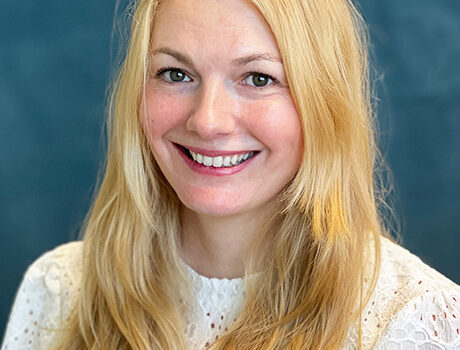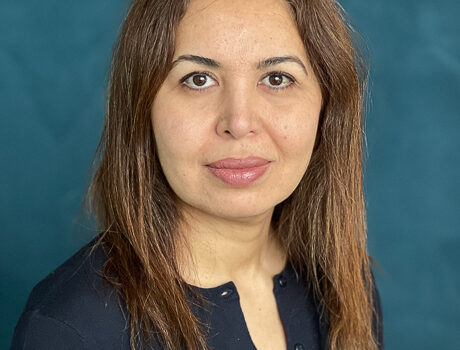


Vladimir A. Nikiforov
Vladimir Nikiforov is a synthetic organic, organofluorine and physical organic chemist by background. In addition, he has 30+ years of experience in environmental chemistry with emphasis on trace organic analytical chemistry.
His key expertise and research interest are: QSAR, PFAS, NTS, SVOC, suspect screening, microplastic, synthesis of standards, method development, GC, LC, MS, NMR, Fate model, transformation products, reactivity of organic molecules, transformation kinetics, transformation reactivity, transformation persistency, UV-compounds, tire additives, air sampling, air monitoring, Arctic pollution, derivatization method, structure elucidation, international regulation, and chemical education.

Pernilla Bohlin-Nizzetto
Dr. Pernilla Bohlin Nizzetto is Research Director and Head of NILU's Department of Environmental Chemistry and Health Effects.
She holds a MSc in Chemistry and a PhD in Occupational and Environmental Medicine from the University of Gothenburg in Sweden in collaboration with Lancaster University in the UK. She also has a 2-year post-doc from RECETOX at Masaryk University in the Czech Republic.
Since 2022, Nizzetto coordinates the Horizon Europe project INQUIRE (Identification of chemical and biological determinants, their sources, and strategies to promote healthier homes in Europe), which is part of the EU's IDEAL Cluster. In INQUIRE, the goal is to improve air quality and reduce the occurrence and exposure to harmful substances in indoor environments.
During her 15 years as a researcher in environmental chemistry, Nizzetto has focused on environmental chemistry issues indoors and outdoors with a desire to protect people, the environment and ecosystems.

Silje Winnem
Silje Winnem is the administration coordinator in the Department of Environmental Chemistry and Health Effects at NILU. She is located in The Fram Centre in Tromsø.
As administrative coordinator, Winnem is responsible for all the administrative work and plays a key role in tying together the various disciplines and departments into one business. She is an active partner and facilitator, and is systematic, service-minded, responsible and proactive.
She is also a member of the User Committee at The Fram Centre, where NILU in Tromsø is located, and is active in the collaboration between the other 20 institutions in the building.

Monika Strasser Englund
Monika Strasser Englund is the administration coordinator in the Department of Environmental Chemistry and Health Effects at NILU.
As administrative coordinator, Englund is responsible for all the administrative work and plays a key role in tying together the various disciplines and departments into one business. She is an active partner and facilitator, and is systematic, service-minded, responsible and proactive.
She is also an employee representative on NILU's board.

Pawel Rostkowski
Dr. Pawel Rostkowski is a Senior Scientist in the Department of Environmental Chemistry and Health Effects at NILU (Norway). He specializes in environmental analytical chemistry, focusing on identifying and characterizing emerging contaminants, particularly through non-target and suspect screening methods using high-resolution mass spectrometry.
Throughout his career, Rostkowski has developed innovative methods for detecting organic contaminants across various environmental matrices, products, and food contact materials.
In addition to his research, he plays an active role in various international scientific and regulatory organizations. He is a member of the Steering Committee for the NORMAN Association, which addresses emerging pollutants in Europe, and represents Norway in the European Environment Information and Observation Network (EIONET) Chemicals Expert Group.
He is also involved in BP4NTA (Benchmarking and Prioritization of Non-Target Analysis), an initiative focused on advancing non-target analytical techniques and establishing best practices for prioritizing unknown environmental contaminants. Furthermore, Rostkowski contributes as an expert in the ISO technical committee ISO/TC 147/SC 2/WG 85, dedicated to developing standards for non-target screening and enhancing methods for environmental monitoring and chemical risk assessment.

Dorte Herzke
Dr Dorte Herzke is a senior scientist at the Arctic environment section in NILU’s Department of Environmental Chemistry and Health Effects located at Kjeller.
Herzke has a long-standing experience in development of analytical methods for determination of persistent organic pollutants as POPs, PFAS, microplastic and additives in environmental samples.
She has substantial expertise in biomonitoring and human exposure to environmental contaminants as well as conducting research on the fate of contaminants in the environment and the contribution to environmental and human exposure.
Herzke has been coordinating national and international research projects as well as acting as an adviser to national authorities. Contributing to the acceleration of our understanding on the drivers and impact of environmental pollution, in order to identify robust solutions, is one of her main motivations in her research.

Alexandra Misci Hudecova
Dr. Alexandra Misci Hudecova is a research scientist at NILU in the department of Environmental Chemistry and Health Effects with expertise in genetic toxicology, environmental health, and cellular biology. In addition to her academic research, Alexandra has professional experience in Good Laboratory Practice (GLP), working as a Quality Assurance (QA) manager. At NILU’s Health Effects Laboratory, which operates under GLP certification, she contributes to maintaining regulatory compliance, ensuring data integrity, and upholding rigorous laboratory quality standards. This experience has reinforced her commitment to high-quality, reproducible scientific research aligned with international regulatory frameworks. Alexandra is also trained in Safe and Sustainable by Design (SSbD) principles, further supporting her commitment to responsible innovation and environmentally conscious research.
Alexandra earned her PhD studying the effects of Gentiana asclepiadea (willow gentian) extracts and silver nanoparticles on DNA damage/repair, adaptive responses, oxidative stress, antioxidant activity, and related cellular mechanisms in mammalian and human cells. Using a range of in vitro methods, she investigated oxidative DNA damage and cellular defense mechanisms, advancing knowledge on how natural compounds and nanomaterials interact with genomic stability and cellular defense systems.
Prior to joining NILU, Alexandra was a postdoctoral researcher at the Norwegian University of Life Sciences (NMBU) in Oslo. Her work focused on the impact of persistent organic pollutants (POPs) on mice, including gene expression and behavioral studies. She explored neurodevelopmental and epigenetic consequences of maternal exposure to POPs, providing insights into strain-specific responses and maternal exposure outcomes with implications for environmental risk assessment.

Ellen Katrin Enge
Ellen Katrin Enge completed her MSc degree in analytical chemistry at the University of Tromsø, with her master's thesis carried out at NILU in Tromsø in the period 1995–1997. After graduating, she was employed at NILU, first at the laboratory in Tromsø, and from 2001 at the laboratory at Kjeller.
Throughout her time at the department, Ellen Katrin has had several key roles, including Project Manager and Head of the section for test preparation. The section currently consists of 14 employees, including technicians, engineers and researchers. She also has a key role in the department's accredited laboratory activities.

Elise Rundén-Pran
Dr. Elise Rundén-Pran is a senior scientist at NILU in the department of Environmental Chemistry and Health Effects. She is section leader for the Health Effects Laboratory and an ERT registered toxicologist.
She has extensive experience in toxicology, nanotoxicology, nanosafety, cell cultures, 3D-cellular models, nanogenotoxicology, DNA damage, intracellular cell death signaling, microscopy (confocal, TEM), immunohistochemistry, tissue slice cultures and neurodegeneration.
She was part of the Centre for Excellence in Molecular Neurobiology and DNA repair (UiO) for several years (PhD and Postdoc). She is experienced with human risk assessment and regulatory toxicology, partner leader in EURONANOMED II projects GEMNS and INNOCENT, and NILU project leader for several projects funded by EU and NFR. She has extensive experience in GLP, and is appointed member of the national committee for approval of European registered toxicologists (ERT), The Norwegian Scientific Committee for Food and Environment, and member of the national expert group for toxicology.
The Health Effects Laboratory is certified for Good Laboratory Practice (GLP) for in vitro human toxicity studies. The laboratory is among the leading laboratories in Europe in nanotoxicology and nanosafety, and main areas of interest are genotoxicity, carcinogenicity in vitro, epigenetics, advanced in vitro models, regulatory aspects of nanosafety, high-throughput approach to toxicity testing, intelligent testing strategy and adverse outcome pathways.









